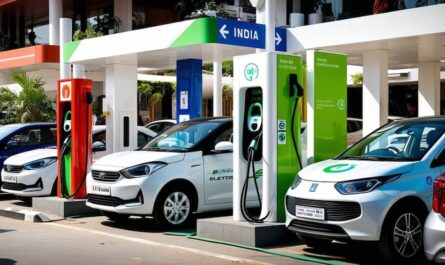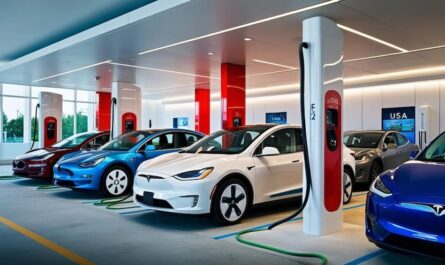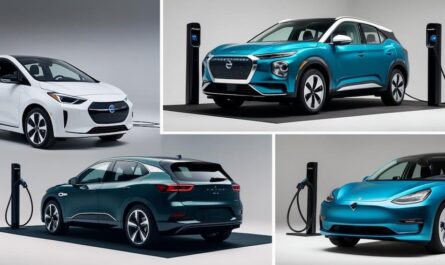When you consider charging your electric car at home, the choice of a universal electric car charger can make your life much easier. You want a solution that fits various EV models, offers safety, and is compatible with your home’s electrical setup. Meanwhile, understanding the types, features, and costs of these chargers will help you make a better decision. This knowledge will benefit your daily routine and your wallet too.
What is a universal electric car charger
They are chargers designed to work with most electric cars, no matter the brand or model. Unlike chargers tethered with a fixed cable, universal chargers usually allows to use your own charging cable, typically a Mode 3 cable, which is common across many EVs. This flexibility means you can charge different EVs without needing multiple chargers or adapters.
What are types of home electric car chargers
You will primarily come across two types of chargers: AC (alternating current) and DC (direct current). For home use, AC chargers dominate because they are compatible with household electrical systems. Level 1 chargers use a standard domestic 3-pin plug and provides about 3 kW of power. You can plug these into any regular outlet, but charging is slow, often taking overnight or longer.
While Level 2 chargers are more notable for home use, and provides around 7 kW and 22 kW. These require a dedicated wallbox installation and can charge your EV much faster. For example, BMW’s Wallbox Plus offers up to 22 kW charging power, with convenient features like cable management and RFID access control.
On the other hand, DC chargers (Level 3) are usually reserved for public rapid charging stations due to their high power output (50 kW and above) and are not common for home installation.
Important features to consider in a universal charger
When you’re looking for electric car home charger, you should make sure of the compatibility. Make sure your charger is compatible with the connector type your electric car is using. It is commonly Type 2 in Europe. In North America, it is J1772 type. Note: A higher kW rating, means your car charges faster. But your home’s electrical system must support the charger’s power level.
Look for the ones with a built in protections against too many current, or overheating and electrical faults. Bmw’s wallbox home charger, for instance, comes with access protection through its RFID cards. This helps prevent any unauthorized use. Meanwhile some home electric car chargers connect to apps, which let’s you to monitor charging status, schedule charging times, and also find nearby public chargers. BMW’s My BMW app is an example, which offers real time updates and controls from your smartphone.
Professional installation is often recommended too. Chargers like the BMW Wallbox Plus come with installation services to guarantee safety and compliance with local regulations.
Safety and size considerations
You should never overlook safety. Your charger should comply with the standard electrical required codes and standards of your home region. Also, consider the physical size and cable length. A charger with a 6-meter cable, like BMW’s Flexible Fast Charger, offers flexibility in parking arrangements.
Tips: To choose your home electric car charger, begin by assessing your daily driving distance. Also, consider how quickly you want to recharge. For example, if you normally drive short distances, then a Level 1 charger might be what you need to get. But if you need faster movement, investing in a Level 2 charger makes sense.
Meanwhile, check if your home electrical panel can support the charger’s power requirements. You might need an electrician’s advice to avoid overloading circuits. You should also consider future-proofing. A charger compatible with multiple ev brands can save you from upgrading later. A charger capable of higher power levels can also save you from upgrading later.
Are there government incentives for installing home electric car charger
Yes! Governments provide incentives to promote the installation of home electric car chargers, which may include tax credits, rebates, or grants. These measures aim to reduce the upfront costs associated with purchasing and installing charging equipment. In the United States, for instance, the federal government provides a tax credit for the installation of Level 2 home charging stations.
Additionally, many states and local governments have their own programs that offer financial assistance or rebates for both residential and commercial charging installations. It’s important you check with your local utility providers. They may offer additional incentives. They might also offer lower electricity rates for you if you charge your vehicle at home.
Meanwhile, these incentives not only help offset installation costs, it also designed to help promote the use of electric vehicles. This contributes to a more sustainable future.
Questions people are asking us about electric car universal chargers
Do all electric car chargers fit all cars? Not exactly. While universal chargers support many models, connector types and onboard charger limits depends. Most home chargers use Type 2 connectors in Europe or J1772 in North America, which cover most evs.
Can I use a universal charger for multiple cars? Yes, if the charger supports the connector types and power levels of your cars. So using your own Mode 3 cable with a universal station makes this easier.
Is professional installation necessary? Yes, especially for Level 2 chargers. A well installed charger will guarantee safety, plus compliance with the law, and also will provide effective performance.
What does electric car universal charger cost
Costs usually depends on power capacity and features. Basic Level 1 chargers can be very affordable or even come with your EV. Level 2 chargers sales between $500 to $1,500 or more, plus the installation fees too. Installation costs depend on your home’s electrical setup, which might require upgrades to handle higher power loads.



